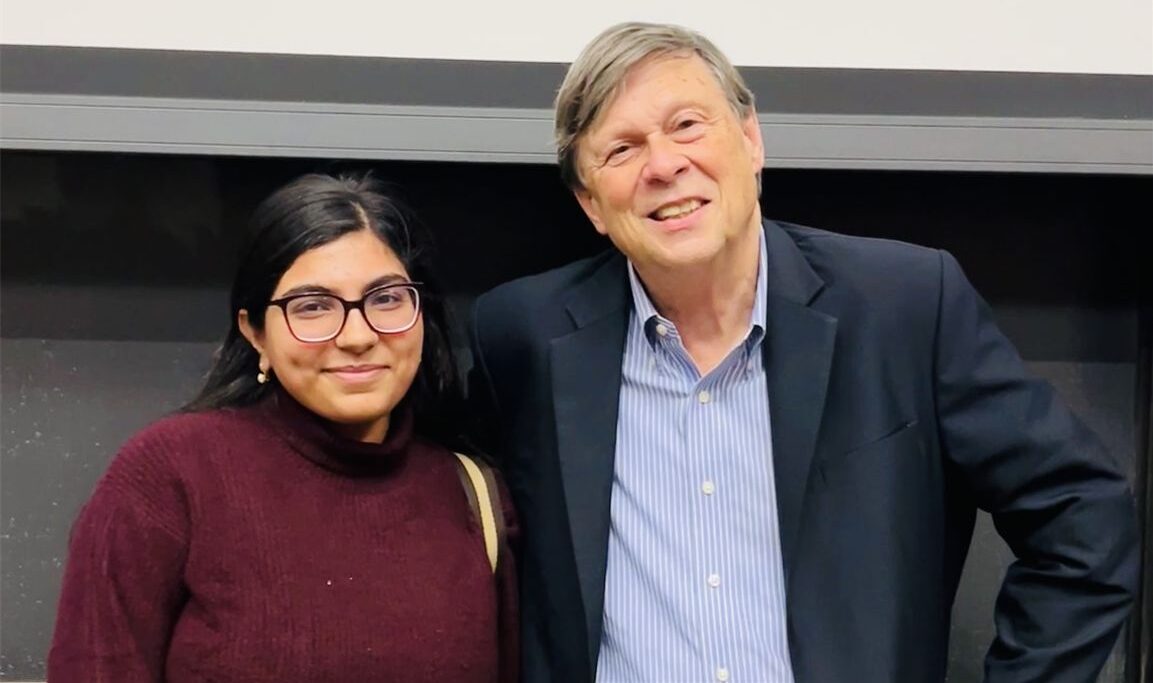Dana-Farber Cancer Institute shared on LinkedIn:
“‘Humans are difficult,’ said Mark Davis, director of the Stanford Center for Human Systems Immunology and invited Baruj Benacerraf Lecturer in Immunology on Oct. 23. ‘But they are the next level of learning in the field of immunology.’
The annual Benacerraf Lecture, co-hosted by Dana-Farber and Harvard Medical School (HMS), honors the late Baruj Benacerraf, who won the Nobel Prize in Physiology or Medicine in 1980. For decades, experts in immunology worldwide have shared knowledge at this event, hosted by Harvey Cantor, Baruj Benacerraf Professor of Immunology at HMS and Principal Investigator in Cancer Immunology and Virology at Dana-Farber.
Cantor reflected on Davis’s impact: ‘His work on how T cells recognize foreign proteins (‘antigens’) has changed the way we think about the immune response. The immunological tools he has developed to track T cells are also widely used to analyze new strategies for immunotherapy.’
In his lecture, ‘Immune organoids and combinations to advance our understanding of autoimmunity, vaccination, and infection,’ Davis proposed increasing the use of human models in basic science research.
Earlier in his career, Davis identified many T cell receptor genes that enable recognition of antigens on bacteria, viruses, or cancer cells. His lab developed technologies to detect these receptors in tissue and blood samples.
About 25 years ago, Davis devised peptide-MHC tetramers, enabling researchers to label T cells precisely. This tool allows investigators to monitor T cell populations before and after interventions. More recently, his lab later advanced this with spheromers, which label T cells more efficiently.
The lab also introduced the GLIPH program, a high-throughput technique for analyzing T cell repertoires. ‘This repertoire is totally unique to each individual,’ said Davis. “It can help us learn more about why an individual resists an infection, or how autoimmunity developed.’
Currently, Davis is working to model the human immune system in a dish, using tonsil or spleen tissue to create immune organoids, which are bundles of cells that mimic immune responses. ‘These organoids provide us with a way to study immune responses and manipulate them,’ said Davis.
‘Immune organoids help us test our ideas and refine them in human tissues before launching an expensive and time-consuming clinical trial,’ said Davis.
Davis’s lab has created a spleen-based immune organoid library from 75 deceased donors of diverse ethnicities and ages. By combining these organoids with other tissues from the same human, like lungs infected by COVID-19 or influenza, they study immune system interactions.
‘These models provide a window into human immunology that exceeds the potential of mouse models,’ said Davis. ‘We think there are human-specific immune phenomena, and we need human models to understand them.'”


